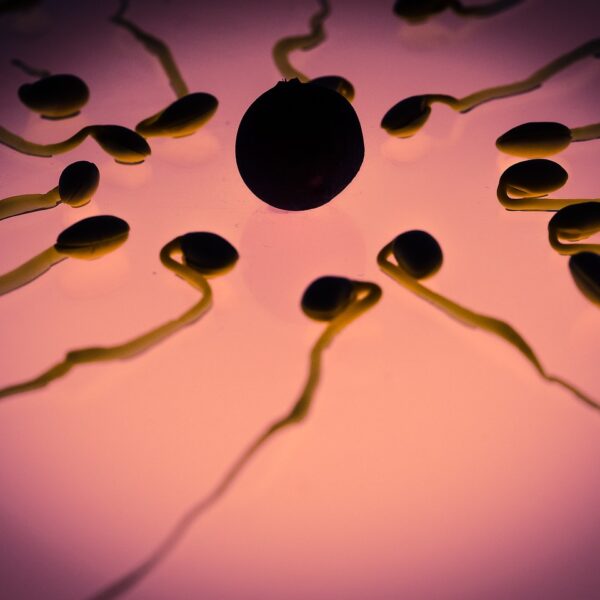Snuggles, snacks, and a shower are typically what follows sex – not pain or a burning vulva. If this is a new symptom for you, don’t panic! There are a few common reasons this may be happening.
These include: Lack of lubrication, Allergies, Irritation, and Infections. Here’s what to do to fix it: 1. Use a water-based lubricant before and during sex.
Lack of lubrication
It is normal for a woman to feel pain in her vulva or pelvic area after sex – This section is the result of the website’s editorial analysis https://lolasexy.com. However, the reason why it hurts could be a variety of things.
For one, the friction from sexual penetration can cause it to sting. When this happens, it is a sign that there is not enough lubrication present to prevent the skin from chafing against each other during the act of penetration. Using a good amount of water-based lubricant before sex can help with this problem. In addition, making sure that a woman is fully aroused before penetration and engaging in foreplay can also help.
Another possible reason why the vulva may be feeling painful is due to an imbalance in hormone levels. When a woman is going through menopause, her estrogen production will decline. This can result in the vagina lining becoming thinner and drier.
This can make it irritable and prone to infections such as yeast infections. Also, certain chemicals from soaps, detergents and other household products can irritate the vulva. It is best to switch to natural products that do not contain such chemicals. These can be found in a natural store and are often less expensive than regular household items. In addition, a diet high in fresh fruits and vegetables can help with this issue as well.
Allergies
When a person is allergic to something that is coming in contact with the vulva or vagina, it can cause irritation and burning. That could include anything from lubricants, latex condoms or even perfume, laundry detergent and fabric softener. It can also be a symptom of a yeast infection or bacterial vaginosis, as well as an STI. If a person suspects that they are having an allergy, it is best to visit a doctor.
The doctor can deduce what is causing the pain or soreness in the vulva or vagina, and prescribe treatment. If there is a problem that needs to be treated, such as a yeast infection, bacterial vaginosis or an STI, the symptoms will usually subside within a few days of starting treatment.
A stinging feeling in the vulva after sex is a sign that there is a medical issue, and that is why it’s important to see a doctor. Any pain in the vulva or vagina should never be ignored.
Taking a cold compress to the area can help soothe the irritation and reduce inflammation. This will also help with the burning feeling in your vulva after sex. If you can’t get a cold compress, applying a cool washcloth to the area can also be helpful. A hot or warm bath is also recommended, but a bath should only be taken if it is not too hot and does not burn the skin.
Irritation
The vagina naturally produces lubrication, and while it doesn’t always correlate with arousal (you can be wet and not aroused) this lubrication reduces uncomfortable friction during penetration. When you don’t have enough lubrication, sex can be painful and uncomfortable, and can even burn.
Irritation can be a major factor in burning during sex, and there are a variety of reasons why this could be happening. Douching and using scented vaginal products can lead to irritation, as can certain types of underwear, such as those made with non-breathable fabrics like polyester. If you have recently started taking a new medication, it’s also worth checking whether the side-effects include vulvar or vaginal irritation.
Sexually transmitted infections, including trichomoniasis, a bacterial infection that can cause inflammation and swelling of the vulva, or chlamydia, an STI that can also lead to pain and burning, are another reason you might be feeling this way. In both cases, antibiotics should help clear the infection and relieve the symptoms.
Hormonal changes that occur during menopause, or during and after pregnancy, can also affect the vulva. This can leave the vagina drier and thinner, with less elasticity, and it can lead to a burning sensation during sex called vulvodynia. The same hormone changes can also make it difficult to have sex, or even impossible if you have an issue known as vaginismus or vestibulodynia.
Infections
A burning sensation in your vulva during or after sex is not normal, and it is likely due to an infection. Yeast infections, bacterial vaginosis, STIs like trichomoniasis or chlamydia and UTIs can all cause a burning sensation in the vagina. Other symptoms of STIs include itching, a fishy smell and painful sex. Itching in the vulva and genitals can also be a symptom of bladder irritation, a urinary tract infection and even cancer of the ovary.
A urine test can confirm if you have an infection and what kind. Taking antibiotics for the infection should help relieve the pain. A gynaecologist can help you figure out what’s causing the itch and prescribe antibiotics if needed.
Vaginal and vulvar irritation can be caused by soaps, lubricants, douching products and fabrics that are too rough on the area. It can also be a sign of an allergy to certain condoms, lubricants and lotions.
The most common reason you may feel a burning sensation in your vulva after sex is because of an existing infection. Sexually transmitted diseases like trichomoniasis, chlamydia and gonorrhea can inflame the tissue in your vulva, making you sensitive to touch. Rubbing of the inflamed tissues during sex can cause a burning feeling, as well as itchiness and a fishy odor. It’s important to see your gynaecologist if you have these symptoms, so they can offer treatment and get you back to enjoying sex.




Leave a Comment